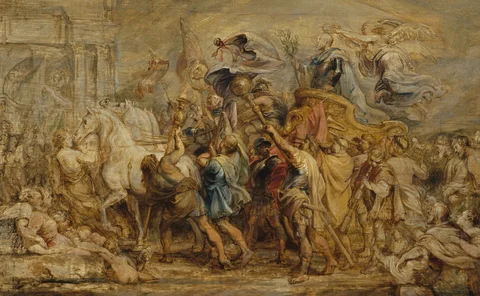Waters Wrap
Fidelity expands open-source ambitions as attitudes and key players shift
Waters Wrap: Fidelity Investments is deepening its partnership with Finos, which Anthony says hints at wider changes in the world of tech development.
TCB Data-Broadhead pairing highlights challenges of market data management
Waters Wrap: The vendors are hoping that blending TCB’s reporting infrastructure with Broadhead’s DLT-backed digital contract and auditing engine will be the cure for data rights management.
Tokenization & Private Markets: Where mixed data finds a needed partner?
Waters Wrap: Reading the tea leaves, Anthony predicts BlackRock’s Preqin deal, Securitize’s IPO, and numerous public comments from industry leaders are just the tip of the iceberg.
As outages spread, it’s time to rethink how we view infrastructure technology
Waters Wrap: First AWS and then Azure. And these are only the most recent of significant outages. Anthony says a change is needed when it comes to calculating server migrations.
When it comes to cybersec, the walls of separation are too high
Waters Wrap: Anthony examines some recent statements made by prominent cybersecurity experts and why those words might ring hollow.
Bank of America’s GenAI plan wants to avoid ‘sins of the past’
Waters Wrap: Anthony spoke with BofA’s head of platform and head of technology to discuss how the bank is exploring new forms of AI while reducing tech debt and growing interoperability.
The TNS–Radianz deal hints at underlying issues in trader voice
Waters Wrap: As part of its cost-cutting program, BT shipped its Radianz unit to TNS, but the deal didn’t include its Trading & Command trader voice property. Anthony finds that interesting.
Halftime review: How top banks and asset managers are tackling projects beyond AI
Waters Wrap: Anthony highlights eight projects that aren’t centered around AI at some of the largest banks and asset managers.
‘AI for everyone, everywhere, with everything’
Waters Wrap: Anthony looks at some interesting projects involving machine learning, generative AI, and agentic AI from the last year.
The industry is not ready for what’s around the corner
Waters Wrap: As cloud usage and AI capabilities continue to evolve (and costs go up), Anthony believes the fintech industry may face a similar predicament to the one facing journalism today.
The Model Context Protocol brings agents to life—along with risk
Waters Wrap: From chat to infrastructure modernization, Anthropic’s MCP offers a ‘bridge’ to agentic AI, but its early days may prove disillusioning.
Cloud Wars: Are EU and APAC firms really pining for homegrown options?
Waters Wrap: In the wake of tariffs and regional instability, there’s chatter about non-US firms lessening their dependency on the major hyperscalers. Anthony is not buying it.
LLMs are making alternative datasets ‘fuzzy’
Waters Wrap: While large language models and generative/agentic AI offer an endless amount of opportunity, they are also exposing unforeseen risks and challenges.
LSEG–MayStreet: When good partnerships go bad
Waters Wrap: MayStreet’s founder and former CEO is suing LSEG for fraud and breach of contract. Anthony considers what the damage control might look like.
The Consolidated Audit Trail faces an uncertain fate—yet again
Waters Wrap: The CAT is up and running, but with a conservative SEC in place and renewed pressure from politicians and exchanges, Anthony says the controversial database faces a death by a thousand cuts.
State Street’s interop play for FX and easing technical debt
Waters Wrap: About six years ago, State Street partnered with Interop.io to tie together its GlobalLINK suite of platforms. Anthony explores how this plays into the “reuse” mantra.
Regulators can’t dodge DOGE, but can they still get by?
The Waters Wrap: With Trump and DOGE nipping at regulators’ heels, what might become of the CAT, the FDTA, or vendor-operated SEFs?
Tariffs, data spikes, and having a ‘reasonable level of paranoia’
History doesn’t repeat itself, but it rhymes. Covid brought a “new normal” and a multitude of lessons that markets—and people—are still learning. New tariffs and global economic uncertainty mean it’s time to apply them, ready or not.
DLT and digital contracts for market data: Has the hammer found the nail?
Waters Wrap: A new platform that a custom-made DLT underpins is coming to market. Anthony examines its merits and, surprisingly, finds a lot.
The murky future of buying or building trading technology
Waters Wrap: It’s obvious the buy-v-build debate is changing as AI gets more complex, but Anthony wonders how trading firms will keep up.
FactSet-LiquidityBook: The buy-side OMS space continues to shrink
Waters Wrap: Anthony spoke with buy-side firms and industry experts to get a feel for how the market is reacting to this latest tie-up.























